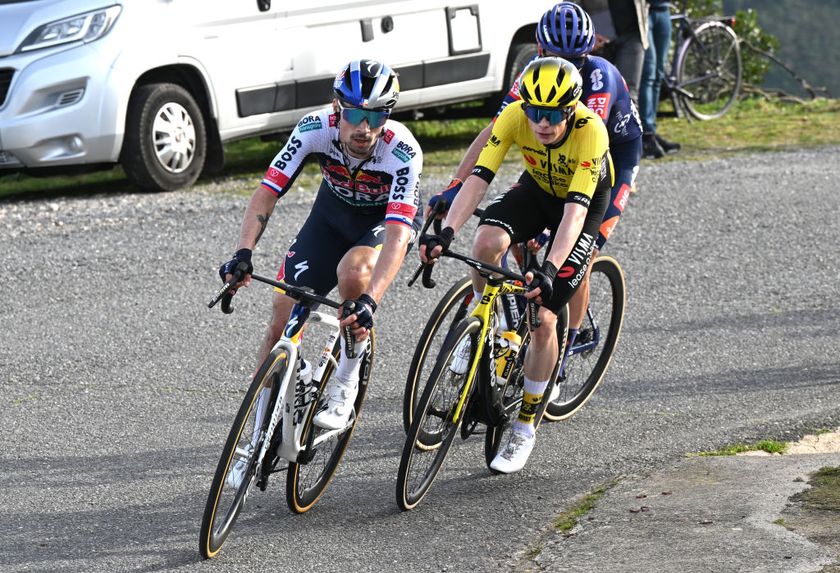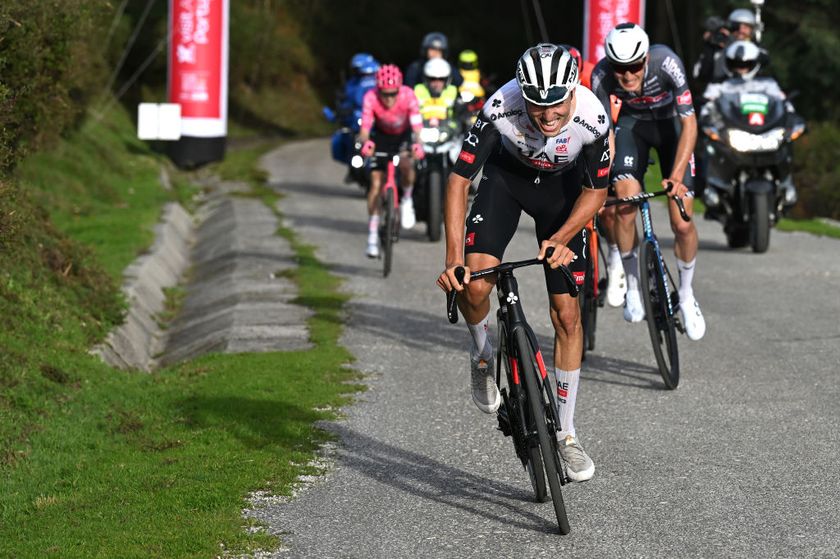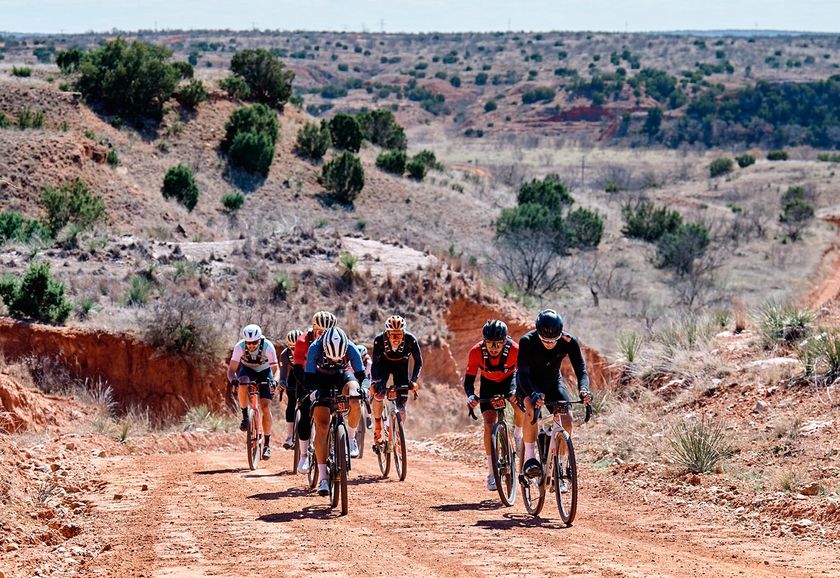Landis: LeMond’s anti-doping stance on Lance Armstrong lacks consistency
American asserts that Zorzoli’s position raises questions over the UCI’s credibility



Floyd Landis has questioned Greg LeMond’s consistency surrounding Lance Armstrong and doping bans, telling Cyclingnews that “inconsistent treatment of riders who doped is troubling and undercuts LeMond’s argument that Armstrong should be banned for life.”
LeMond not satisfied with Armstrong’s admission
Hayman refuses to discuss Geert Leinders
Jaksche: Cookson should talk to Armstrong and Landis
Landis and Lim clash over Cycle of Lies
LeMond: Armstrong deserves lifetime doping ban
Leinders handed lifetime ban by USADA for doping offences
Landis, who is in the midst of a US whistleblower legal suit, also told the website that the roles of Dr Geert Leinders at Rabobank and at Team Sky, and the alleged conduct of the Scientific Advisor and UCI doctor Mario Zorzoli raises series questions over the credibility in the running of the sport.
Armstrong was banned for life in 2012 by USADA in the wake of the association’s long investigation into doping at the US Postal team. Landis was a key witness against Armstrong and has been credited as the main factor in convicting the former seven Tour de France title winner after he first spoke up about doping on the team in 2010. The pair had been teammates from 2002 until 2004, with Landis admitting he doped for the first time while at US Postal.
To complete the trifecta, LeMond, a three-time winner of the Tour, fell out with Armstrong in the 2000s after questioning Armstrong’s ‘clean’ record. On a business level it led to an acrimonious split between LeMond and Trek, who at the time had a joint venture.
Earlier this week LeMond – while speaking at the Tour Down Under in Australia - told reporters that Armstrong deserved his ban for life.
“I would never pretend to know what I'd do in Greg's shoes. Nor do I know all of what went on between him and Armstrong,” Landis told Cyclingnews.
“I can certainly empathize with his personal distaste for Armstrong. However, his inconsistent treatment of riders who doped is troubling and undercuts his argument that Armstrong should be banned for life.”
Get The Leadout Newsletter
The latest race content, interviews, features, reviews and expert buying guides, direct to your inbox!
Landis points to an episode from last year in which LeMond was seen at the Tour de France with former winners Miguel Indurain and Bernard Hinault.
“For example just last year he was seen waiving to crowds from a VIP car at the Tour along with Indurain and Hinault. Greg himself claims to have quit racing in the early 90s because EPO showed up and that is exactly when Indurain began winning. If clean riders were a victim of doping in the Armstrong era and he was a victim of doping in the early 90s then it defies reason why those two should be treated so differently,” Landis said.
“And for those who still have faith in the Indurain years, consider LeMond's comments last year that Pantani was one of the greatest ever. I think that should speak for itself. His wildly varying positions on different dopers are bizarre and indefensible. Greg needs to decide if he’s anti-doping or anti-Lance.”
The Leinders case
Away from the US and Dr Geert Leinders is now serving a lifetime ban for doping violations including trafficking. He was sentenced by a volley of anti-doping authorities including USADA, with all the evidence gathered sent to the sport’s governing body, the UCI, and the independent commission, CIRC.
Landis never worked with Leinders, instead riding on the road for Mercury, US Postal, Phonak and two US domestic teams before his retirement. Leinders worked within the professional peloton in overlapping years but at Rabobank, a team that once tried to sign Landis, and at Team Sky from 2010 until 2012. All of the charges Leinders faced were linked to his time at the now defunct Rabobank squad, with no evidence suggesting he broke rules under Team Sky’s vigil. The doctor has since stated his innocence to Dutch television networks.
“Leinders was just one of many,” Landis told Cyclingnews when asked if his practices during the 1990s and 2000s were typical of the era.
“His statement that as a physician he considers himself innocent seems to be implying that what he did was for the health of the riders. While it is arguably healthier (although that's splitting hairs) to replace hormones under the stress of racing, it remains a violation of the rules and often a violation of law.”
“Indeed he certainly seems to qualify for a lifetime ban. I never thought that USADA's mission was one man, however the inequities in the treatment of those involved does seem subjective at best. Yes, by that I mean the differing suspensions,” Landis said, referring to the fact that a number of confessed dopers were handed just six months in the wake of the US Postal investigation.
Part of the investigation into Leinders revealed more allegations surrounding the conduct of the UCI’s Scientific Advisor and UCI doctor Dr Mario Zorzoli.
Former rider Michael Rasmussen testified that Zorzoli met with Leinders and said "Rabobank was a team that had ‘butter on its head’…meaning that all the problems, doping related problems would slide off,” USADA wrote in the full decision.
It goes onto say that Leinders refers to Rasmussen as "the most protected rider in the race". Rasmussen also claimed that Leinders advised him to use the steroid DHEA (didehydroepiandrosterone) as a result of a recommendation from Zorzoli.
On the same day as USADA’s Leinders announcement, Zorzoli was suspended from his position at UCI until further notice. He was briefly suspended in 2006 by the governing body for leaking information surrounding Lance Armstrong’s test results and faced further media scrutiny last year after it was confirmed that he had fast-tracked a TUE for Chris Froome at the Tour of Romandie.
“The accusations against Zorzoli only go to show that the UCI still has questions to answer over his behavior as what Zorzoli is alleged to have done just is plain corruption. Writing a fast-tracked TUE for a Tour winner last year sounds suspiciously like what happened in 1999 as well,” Landis said, likening the Froome episode to Armstrong’s cortisone case from 1999.
For Landis, the case of Leinders and his work with Team Sky also raises questions for the British team over the doctor’s work with the squad during the season in which Bradley Wiggins won their first Tour de France. Although Leinders was not part of the staff at the Tour when Wiggins won in 2012, he did work a total of 80 days for the team. Sky maintain that they were unaware of Leinders' past when they hired in him 2011 but after an internal investigation they decided not to re-new the doctors contract in October 2012. They have categorically denied that Leinders broke any anti-doping rules while at the team, and Wiggins has likewise maintained that he and Team Sky have always raced clean.
In a statement released on Thursday a Team Sky spokesperson said: "Although nothing improper happened during his time at Team Sky we have acknowledged many times that it was a mistake to hire him. We would never have done so had we had any suspicions or knowledge of his past and we have reviewed our recruitment processes and checks as a result.”
“We are proud to have fulfilled our 2010 objectives of winning the Tour de France with a British rider and winning it clean."
On the subject, Landis told Cyclingnews: “In my opinion Wiggins went from a hopelessly average climber to being the second best rider in the Tour in 2012. In 2011, the year Leinders joined the team, Wiggins transformed into a climber who was even better than he'd been in 2009.
“People are free to judge that for themselves and ask legitimate questions about Sky and their hiring policy.”
“In light of all of this, the comments from Greg, Armstrong, Leinders and Zorzoli, it's not surprising that virtually all legitimate sponsors have fled the sport. It is now financed primarily by bored wealthy men who need a reason to give their wives about why they spend so much time with young leg-shaving men in tight pants.”
Daniel Benson was the Editor in Chief at Cyclingnews.com between 2008 and 2022. Based in the UK, he joined the Cyclingnews team in 2008 as the site's first UK-based Managing Editor. In that time, he reported on over a dozen editions of the Tour de France, several World Championships, the Tour Down Under, Spring Classics, and the London 2012 Olympic Games. With the help of the excellent editorial team, he ran the coverage on Cyclingnews and has interviewed leading figures in the sport including UCI Presidents and Tour de France winners.
Most Popular









